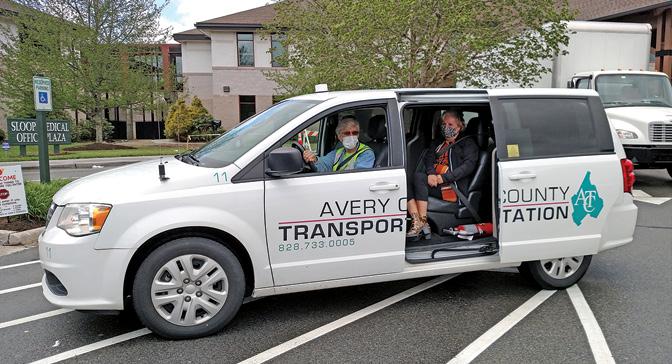
7 minute read
High Country Care Givers | By Pan McCaslin
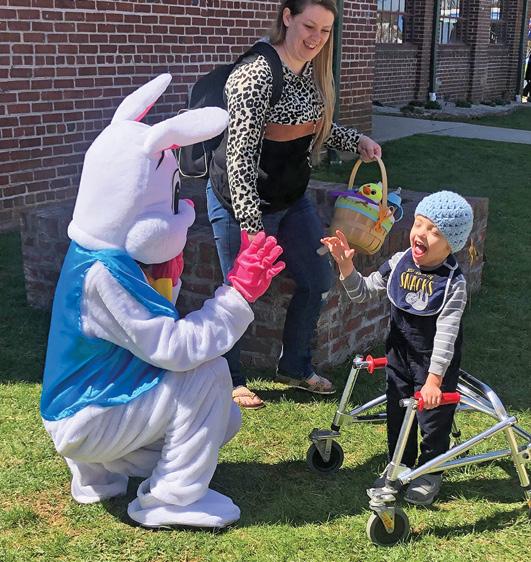
By Pan McCaslin
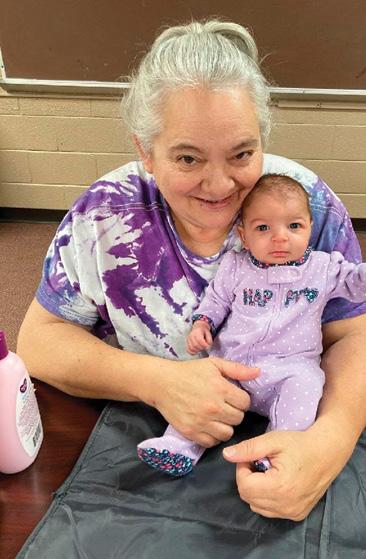
“It takes a village to raise a child”— words attributed to Maya Angelou who spoke of the love and support by her grandmother who stepped in to provide a safe, caring environment for Maya at a time when her own parents were not able to care for her due to their own life circumstances. Throughout history, grandparents and other relatives have served as mentors, nurturers and support to parents and grandchildren. Yet, as the stresses of society and family life have increased, along with substance abuse and mental health issues, grandparents are frequently becoming caregivers, or even guardians to their own grandchildren.
As of March 2021, in North Carolina alone, there are 237,976 children living in homes where a relative (other than a parent) is head of household and over 85,000 grandparents that are responsible for their grandchildren. “Yes, these are our current statistics for North Carolina. And these grandparents often have limited resources and are given no financial or educational support once they take on any children. That is when High Country Caregivers steps in,” shared Marty Wilson, Program Director.
A stand-alone, not for profit organization founded in 2006 to provide advocacy, support and education for kinship caregivers (a term used to describe any relative assisting with raising a family member), High Country Caregivers serves families in six counties—Watauga, Ashe, Avery, Yancey, Wilkes and Mitchell. Jacob Willis, Executive Director of the organization since 2019, states that the work of staff and volunteers supports the Kinship Navigation Model. “We empower kinship caregivers to raise their children/ grandchildren in a safe, stable, and loving environment, recognizing the need for a multi-dimensional program.” The Navigation Model includes community education, financial support for health-conscious youth activities and counseling support. Crisis funds for families who have exhausted their ability to meet basic needs are utilized to support the families while other community resources are accessed.
Unexpectedly becoming a kinship caregiver for a grandchild can be overwhelming. Staff and volunteers from High Country Caregivers assess each family’s needs, helping the kinship caregiver with navigating the school systems, addressing legal issues, and obtaining necessary medical care for the grandchildren. Pisgah Legal Services offers pro-bono representation to families in Avery, Mitchell and Yancey counties. High Country Caregivers also partners with Rivenbark and Brooks, attorneys at law, for families in Watauga, Wilkes, and Ashe counties or for those who do not qualify for Pisgah Legal Services assistance. “We could not provide for our families’ unexpected legal needs without the generosity of the legal communities with which we work,” shared Willis.
Current research highlights the effects of early childhood trauma; therefore, one aspect of the Navigation Model addresses the counseling needs of the children who may be dealing with trauma, behavior issues or other mental health concerns. Funding for some legal fees and counseling are available.
One aspect of improving mental health and trust issues for children is by supporting health-conscious youth activities. “Each family has an individualized needs assessment and plan of care. Financial support is given to kinship care families for activities which target the talents and interests of the children,” shared Wilson. “We have provided funding for piano lessons, recreation fees for camps, band instruments, educational field trips, prom dresses or tuxedos, karate lessons, and dance classes just to name a few. We want to help ensure improved self-esteem and relationship building. We want to give the kids a new perspective on their world and their own unlimited possibilities.”
The individualized plans of care for the families also focus on the needs of the kinship caregiver who may have stepped in at a moment’s notice when their families needed help. Becoming a kinship caregiver brings a unique stress of its own. Many of the caregivers are older, have already raised one family, and have health issues of their own.
“We provide several forms of education and support for our kinship caregivers,” reported Willis. Creating a Family curriculum, evidence-based and to be offered
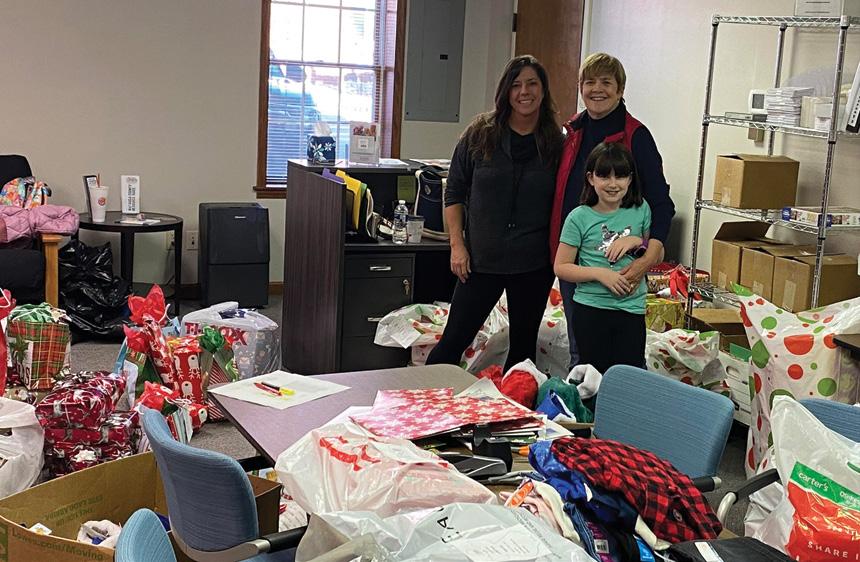
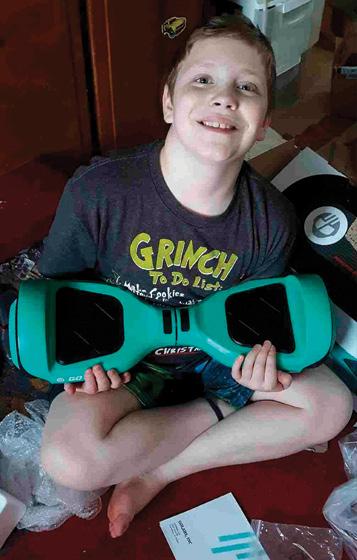
Gifts for clients
monthly over a 10-month period, reinforces healthy aspects of family dynamics. Completion of the curriculum can be utilized by the caregivers towards training which can qualify them for financial support from the state. Monthly kinship caregiver groups which meet in each county help provide education, peer support, and networking, along with a meal. In some counties, childcare is also provided. The support groups “have served to nourish friendships and connections for caregivers even after their ties to High Country Caregivers end,” said Wilson.
A nonprofit organization could not survive without caring volunteers, many of whom are grandparents themselves. The Children’s Wish List was created thanks to the generosity of two women who reside in Florida during the winter and call the High Country home in the summer. The Wish List fund has helped send kinship children to summer musicals, secure needed technology supplies, and provide some of the unexpected needs surrogate parents face on a daily basis.
“Coach’s Kids” is a program sponsored by High Country Caregivers to provide camp opportunities for kinship caregivers and their children. This program is led by former Hall of Fame Appalachian State Head football coach, and current High Country Caregivers board member, Jerry Moore. Coach’s Kids camp provides a safe and engaging summer activity for kids, often when their primary caregivers are working full time.
And what happened to the kinship families when the COVID-19 pandemic halted many normal routines and activities, and many kinship caregiver families were deemed high risk? The staff and volunteers shifted “into overdrive to aid in delivering food, prescriptions, cleaning supplies and of course, toilet paper.” Wilson laughed as she recounted the numerous ways the staff and volunteers created innovative ways to get internet and computer support for caregivers who might have no idea how to homeschool the children in their care. In addition, access to tutors for additional student support was made possible.
But none of these services are without cost. High Country Caregivers is supported through donations and grants. “A Night at Chetola,” an evening benefitting the children of the High Country, will be held, and is sponsored by the KennedyHerterich Foundation and Chetola Resort at Blowing Rock. For more information on date and time, contact HCC at 828-8326366 or www.highcountrycaregivers.com.
In addition, scholarships for kinship children to attend Coach’s Kids are always needed. To donate to High Country Caregivers and to learn the myriad ways kinship children are helped by this organization, see highcountrycaregivers.com or call the office at 828-832-6366.
When asked about the primary needs for High Country Caregivers in the coming months, Willis replied without a pause, “Educating the community that we are here. We work every day with area agencies, the foster care system, education, and the legal system to help provide care and support for children whose homes and lives have been disrupted.”
He continued, “The opioid crisis, which has overtaken our society in the last 20 years, is disrupting families and is the major cause today of children needing kinship caregivers.” The mission of High Country Caregivers is to help keep children in a home where there is a family member who can provide care, support and responsible decision making. But that cannot happen without a multidimensional support system for both the children and the kinship caregivers. “As of May 2021, we are serving 54 families and over 120 kids.” Willis shared that the program of High Country Caregivers is a unique non-profit in its mission and success with supporting families in need. “The closest program like ours is in Charleston, SC. We are proud to be a part of caring for families in the High Country.”
the Kennedy-Herterich
Sponsoring “A Night at Chetola” | Benefitting the children of the High Country

828-773-5842
Serving Western NC with Excellence and Innovative Solutions
Three NC Locations to Serve You: Linville • Winston-Salem • Lake Norman/Mooresville averyheating.com / 1600 Linville Falls Hwy, Linville, NC 28646
Ask about 10% off your next repair call!
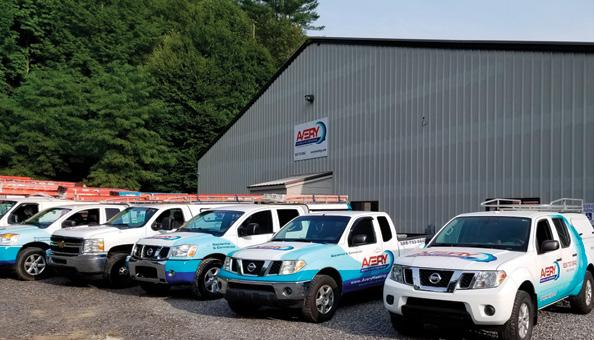
Furniture • Appliances Small Household Items • Books Clothing & Accessories 1/2 Off on clothing every Saturday!

Donations welcomed. Pick up available for furniture and appliances Thank you for your continued support 828-262-5029 877 West King Street, Boone NC Open Mon-Sat, 9am-5pm
SPONSORED BY RESORT AREA MINISTRIES
AVERY COUNTY TRANSPORTATION 34 Pershing St, Newland NC 28657 828-733-0005
Fax: 828-733-8280
• Open Mon–Fri 8:00–4:30 (excludes holidays) • All Routes are open to the public • Trained Drivers to help with elderly and disabled riders • Trips to Medical appointments available outside of the county • ADA compliant vans available • Service animals are welcome • Veterans ride for free for medical appointments • Weekly in-county routes • Affordable Transportation Fares • Available to all Avery County Residents • Services also provided through community agencies
